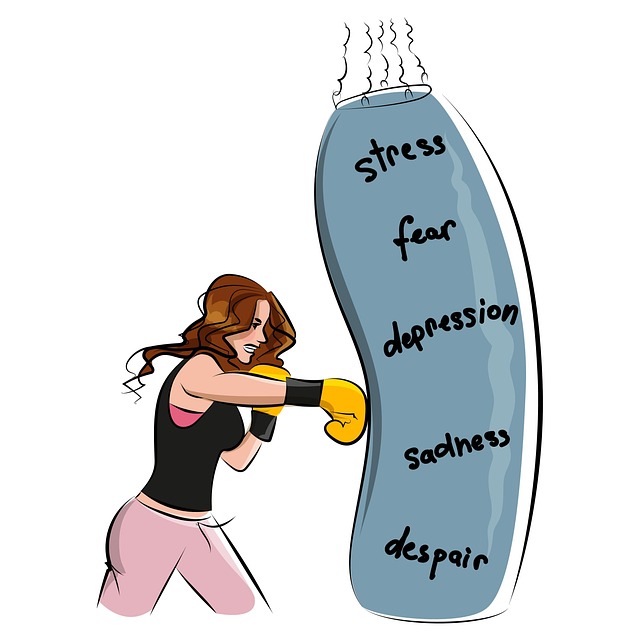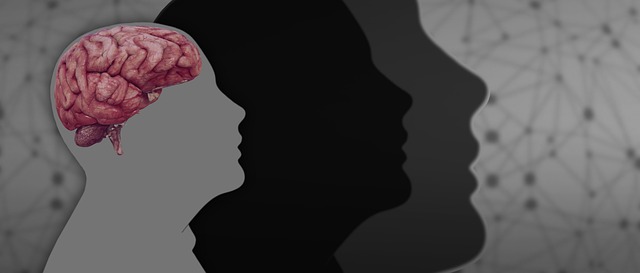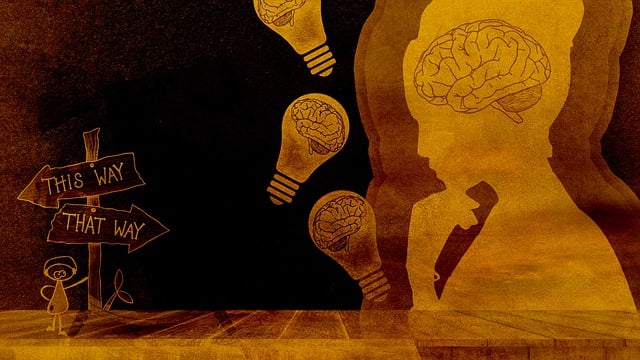In Longmont, the stigma surrounding mental health issues, particularly Oppositional Defiance Disorder (ODD), creates significant barriers to treatment. To combat this, revolutionary educational programs focused on positive thinking and emotional healing are integrated into ODD therapy. These initiatives reduce stigma through community engagement, workshops on mind over matter, and burnout prevention strategies for healthcare providers. A multifaceted approach involving policy changes, funding for mental health programs, and evidence-based practices aims to make Longmont Oppositional Defiance Disorder therapy more accessible and reduce discriminatory practices, fostering a supportive community where individuals feel comfortable seeking help without fear of stigma.
Mental illness stigma remains a significant barrier to effective treatment, impacting individuals’ willingness to seek help. This article explores targeted strategies to reduce this crippling stigma. We delve into the profound effects of stigma on mental health treatment, highlighting the role of innovative approaches like Longmont Oppositional Defiance Disorder Therapy in fostering understanding and acceptance. Additionally, we examine community engagement through educational initiatives and policy advocacy as powerful tools in creating supportive environments for those facing mental health challenges.
- Understanding Stigma and Its Impact on Mental Health Treatment
- Longmont Oppositional Defiance Disorder Therapy: A Comprehensive Approach to Stigma Reduction
- Educational Initiatives for Community Engagement and Awareness
- Policy Changes and Advocacy for Enhanced Support Systems
Understanding Stigma and Its Impact on Mental Health Treatment

Stigma surrounding mental health issues is a significant barrier to treatment and recovery. It often manifests as prejudice, discrimination, or negative attitudes towards individuals with mental illness, creating an environment that discourages seeking help. This societal stigma can have profound effects on those dealing with conditions like Oppositional Defiance Disorder (ODD), affecting their willingness to pursue therapy or adhere to treatment plans in Longmont. Many individuals internalize the stigma, leading to self-stigma, where they view themselves negatively due to their mental health status, further exacerbating existing symptoms and hindering progress towards recovery.
Understanding stigma is crucial in developing effective strategies for its reduction. Mental Health Education Programs designed with a focus on positive thinking can play a pivotal role in changing societal perceptions. By promoting knowledge about various mental health conditions, including ODD, and emphasizing the importance of early intervention and support, these programs can foster empathy and reduce fear or misunderstanding. Additionally, encouraging open conversations about mental health, especially in diverse communities, helps to normalize these discussions, making it easier for those struggling with ODD or other disorders to access Longmont Oppositional Defiance Disorder therapy without fear of judgment or discrimination.
Longmont Oppositional Defiance Disorder Therapy: A Comprehensive Approach to Stigma Reduction

In Longmont, a pioneering approach to Oppositional Defiance Disorder (ODD) therapy is reshaping the narrative around mental health. This comprehensive strategy goes beyond traditional treatment methods by integrating mental health education programs designed to foster emotional healing processes. The program encourages both individual and group participation, promoting compassion cultivation practices among peers, families, and caregivers.
Through these holistic initiatives, Longmont Oppositional Defiance Disorder Therapy aims to reduce the stigma surrounding ODD and other mental health conditions. By fostering an environment of understanding and empathy, this approach not only supports those directly affected but also educates the broader community about the realities of emotional struggles, paving the way for a more inclusive and supportive society.
Educational Initiatives for Community Engagement and Awareness

Educational initiatives play a pivotal role in reducing the stigma surrounding mental illness, particularly conditions like Oppositional Defiance Disorder (ODD) in Longmont. By fostering community engagement and awareness, these programs aim to dispel myths and promote understanding. Workshops and seminars focused on Mind Over Matter principles offer valuable insights into the complexities of mental health, encouraging empathy and support for individuals struggling with ODD. Such efforts are crucial in breaking down barriers and creating a more inclusive environment where those affected can seek Longmont Oppositional Defiance Disorder therapy without fear of judgment.
Additionally, healthcare providers benefit from Burnout Prevention Strategies that emphasize self-care and resilience. Educating professionals about the impact of mental wellness on their practice ensures they remain equipped to offer compassionate care. This holistic approach not only improves provider well-being but also enhances patient outcomes by fostering a supportive community climate where mental illness is seen as a treatable condition, rather than a source of shame or discrimination.
Policy Changes and Advocacy for Enhanced Support Systems

Mental illness stigma reduction requires a multifaceted approach, and policy changes play a pivotal role. Governments and healthcare institutions must implement policies that promote accessibility to therapy services, such as Longmont Oppositional Defiance Disorder Therapy, for individuals across diverse age groups. This includes ensuring adequate funding for mental health programs and integrating these services into primary care settings to reduce barriers to treatment. Advocacy efforts by mental health organizations and support groups are essential in shaping public policy and fostering community understanding. By raising awareness about the effectiveness of therapy and challenging discriminatory practices, these advocacy groups contribute to a more inclusive society where individuals feel comfortable seeking help without fear of stigma.
Moreover, integrating evidence-based practices into therapeutic frameworks is crucial for effective mental health support. Stress Management Workshops Organization, for instance, can empower individuals with practical tools for stress reduction and emotional regulation. Communication Strategies, when incorporated into therapy sessions, enhance the patient-therapist relationship, encouraging open dialogue and fostering a safe space for emotional expression. Emotional Healing Processes that focus on mindfulness, cognitive restructuring, and trauma resolution provide individuals with lasting coping mechanisms to manage mental health challenges. Through policy advocacy and evidence-based therapeutic approaches, society can collectively work towards reducing the stigma surrounding mental illness and enhancing support systems for those in need.
In addressing mental illness stigma, a multi-faceted approach is key. From understanding the profound impact of societal perceptions on treatment seeking to implementing innovative therapies like Longmont Oppositional Defiance Disorder Therapy, each strategy plays a vital role in creating a more inclusive and supportive environment. Educational initiatives and policy changes further reinforce these efforts, empowering communities to advocate for enhanced mental health support systems. By continuing to dismantle stigma, we can ensure that those facing mental health challenges receive the care and compassion they deserve.














